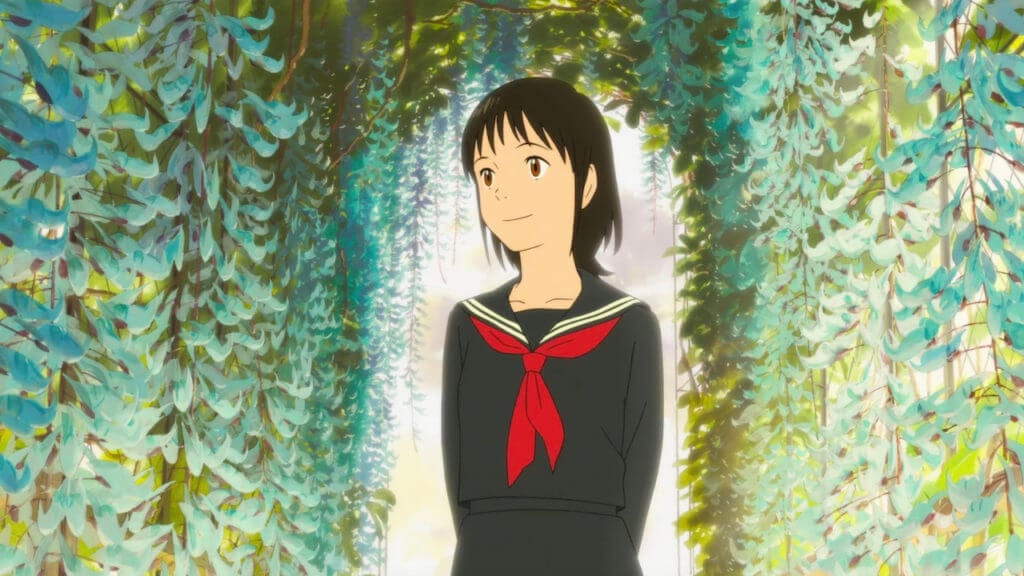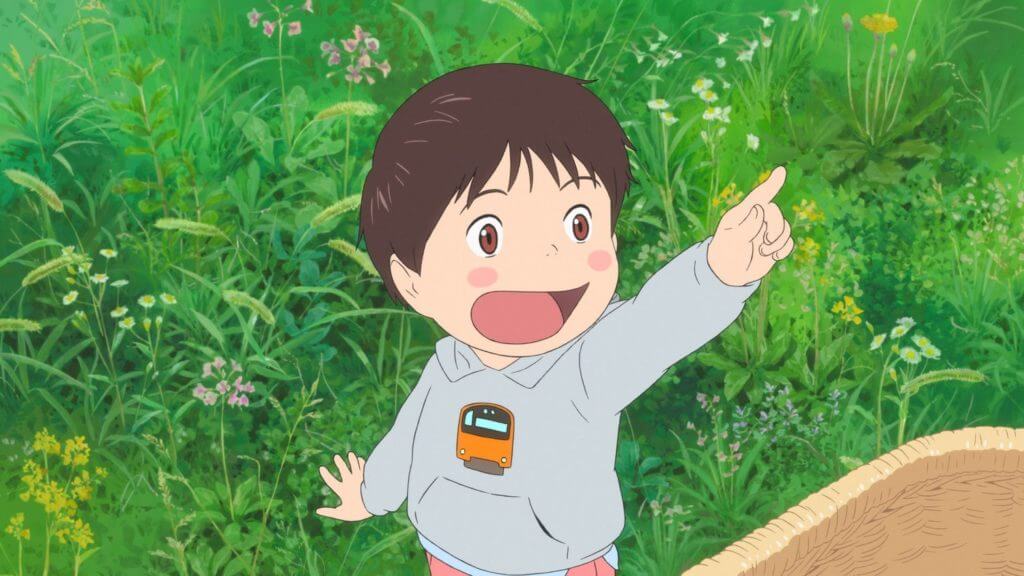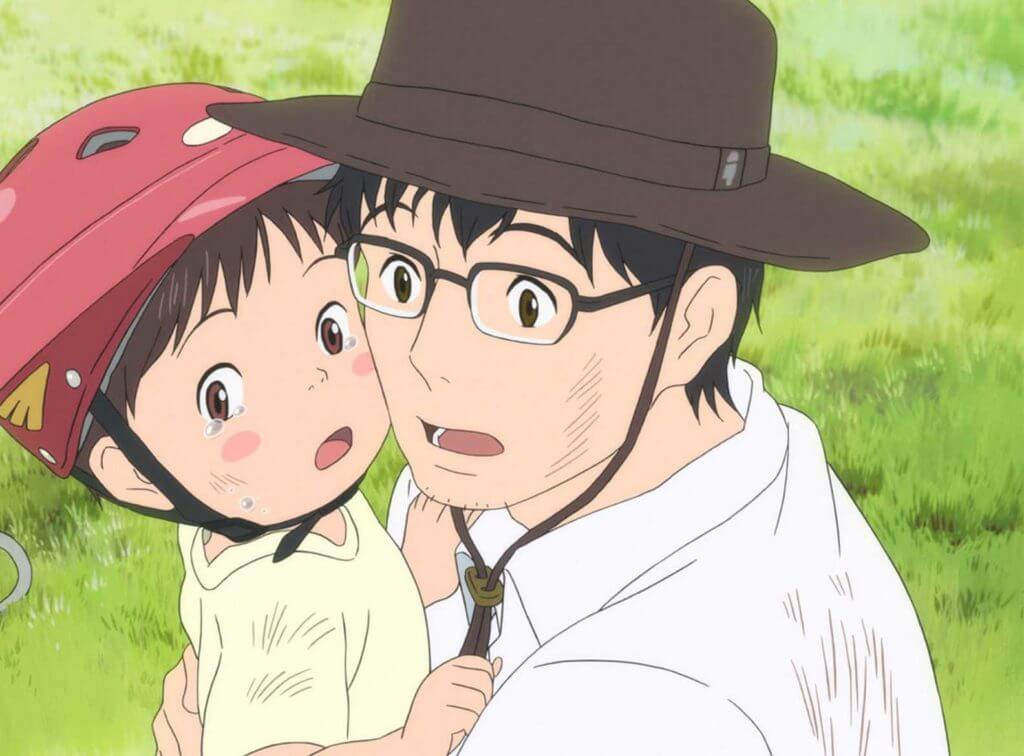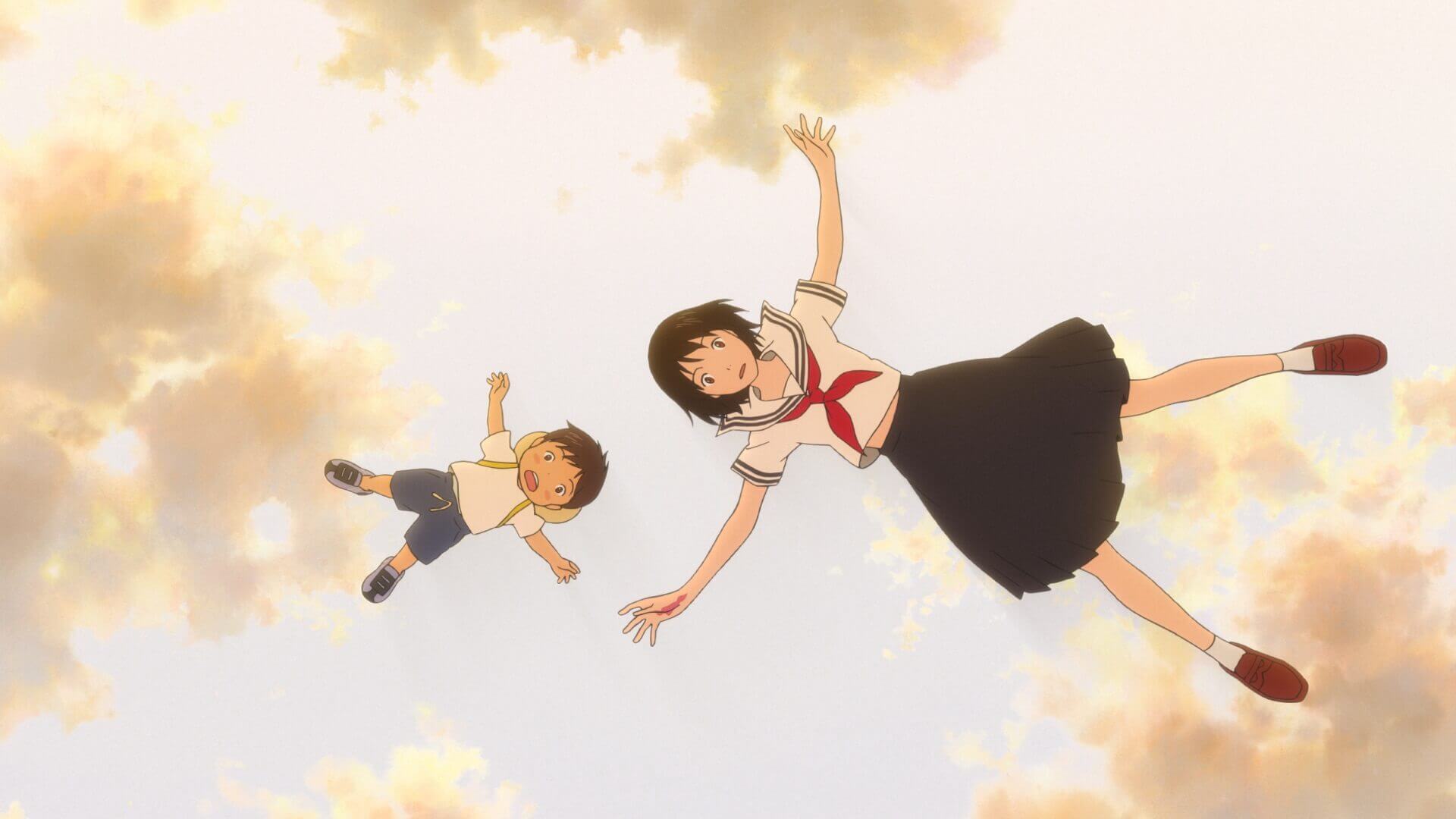REVIEW: Mirai (2018)
Family is a powerful word. When we think of family, we often think of some of the most important people in our lives. Mirai is a movie that understands the importance of family and decides to tell that story through the lens of a young boy named Kun. Mamoru Hosoda has been one of my favorite filmmakers for years. Summer Wars is one of my favorite films of all time, and movies like The Boy and the Beast and Wolf Children are special in their own right. Hosoda has never shied away from addressing family themes, but he’s never tackled the subject more intimately and imaginatively than he does in Mirai.
Mirai follows Kun, a four-year-old boy who spends his days playing with his train sets and his dog, Yukko. His baby sister, Mirai, is born, and Kun quickly finds out that his place in the family is changing. His parents give her all the attention, and his jealousy leads him to hate her. Kun is taken on small journeys with family members from his past, present, and future that give context to their struggles and help him understand his place in the world.

Mamoru Hosoda has outdone himself with the way he’s structured this story. Mirai is a simple narrative that doesn’t try to do too much, while still presenting itself as a grand story. The initial scenes of the film establish the home life for Kun and his family before Mirai is born. Their family dynamic isn’t hard to understand. The mom is an executive that is rarely home while his father works from home as an architect. Once Mirai is brought home, Kun realizes that the little bit of time his family had for him is now being shifted to his newborn sister. Once that element is in play, Hosoda is able to show off a deep and intimate understanding of child behavior.
Kun is an ordinary four-year-old boy that acts like most children his age. He can be nice and understanding, but most of the time he’s an insufferable jerk. The majority of the movie is Kun complaining about not getting his way. He constantly calls out to his mom and dad to fix problems and frequently disobeys them. The brilliance in Hosoda’s writing is in his ability to maintain Kun as an endearing character while showing these flawed characteristics that children commonly have. Kun is annoying, but I can still sympathize with him. He’s a child who believes his whole world is crumbling around him because he’s not used to change.

The fantastic elements of Mirai start appearing when Kun is randomly thrown into different worlds where he meets up with his family members. They’re supposed to help Kun learn specific life lessons. My favorite aspect of these sequences is their ambiguity. We never know whether any of these things are actually happening or if they’re completely made up by this child’s imagination. Hosoda does a good job riding this line without outwardly telling his audience the answer. What I know for sure is that these short interactions pack an emotional punch. My favorite of them is when Kun meets up with his great-grandfather. Kun is scared to ride his bike because he keeps falling, but through this conversation, he’s given advice on how to conquer his fear. It’s a simple yet beautiful experience for Kun that hits hard because of its masterful presentation.
Hosoda’s control of tone plays a big part in why Mirai works so well. He never forgets that he’s telling this story through the lens of a four-year-old child. When Kun is visited by two of his family members at the same time, he’s quickly put into hilarious situations. There is a childlike innocence to these moments, especially a scene involving Kun’s father and some dolls. This understanding of perspective also lends itself to some darker moments. Little kids are easily frightened by situations that adults wouldn’t have a problem navigating. There’s a scene where Kun is lost in a train station and the art style completely changes. Everything becomes foreign to him, and the world suddenly becomes a scary place. It’s a fantastic sequence that adds in some CGI that doesn’t look out of place.
The defining moment of the film comes near the end, when Kun is swept up by Mirai from the future. She takes him to see life-changing moments of their other family members from all across history. This scene is absolutely breathtaking, with gorgeous animation and a message that hits hard. I couldn’t help but get choked up when they look in on Kun’s dad while he was still in elementary school. That revelation gave so much emotional power to an earlier scene that I didn’t think much of.

Hosoda’s animation style has always stood out to me. He uses extremely simple character designs to help highlight the mundane nature of his movies. When he juxtaposes these unassuming designs with fantastic elements, it has a lasting effect on the audience. The way he’s able to transition some of the animation and incorporate CGI when necessary gives Mirai a different feel from his other films.
Mirai’s animation is complemented beautifully by Masakatsu Takagi’s whimsical score. The score is basically the soundtrack to a child’s inner thoughts. It’s playful and mischievous, yet innocent and warm. There are moments when the music does delve into more cinematic territory, especially during the third act.
Mirai is a special film because it delves into family drama in such a thoughtful and creative way. I’ve never seen a movie that gave me plenty of reasons why I shouldn’t have kids, while at the same time demonstrating how rewarding it can be to see a child succeed. Hosoda is a father himself, so it’s clear that this story meant a lot to him. At times, it feels like he made this movie for himself rather than a large audience. There’s a unique sense of intimacy in Mirai that helps it stand out from other movies that try to tackle similar subjects. Mamoru Hosoda proved once again that he is one of the best filmmakers in the world.
Mirai
Plot - 9.5
Acting - 8.5
Direction/Editing - 10
Music/Sound - 9.5
Animation - 10
9.5
Outstanding
Mirai is a gorgeously animated film about family. Mamoru Hosoda tackles heavy themes through the lens of a four-year-old boy. His masterful direction turns Mirai from a simple family movie into a timeless classic.







